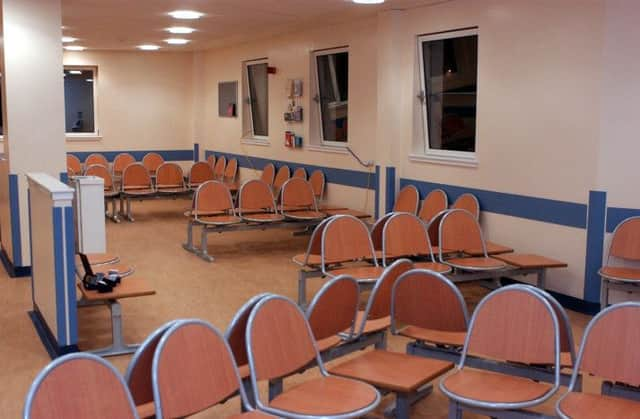Waiting game for patients is simply unacceptable


Recent figures on waiting times for children and young people to access mental health services (CAMHS), provided by the Information Services Division (iSD Scotland), part of NHS Scotland, make clear the challenges faced by children and young people with mental health issues.
Covering the quarter from April to June 2014, these figures indicate that the vast majority of health boards are currently failing to meet a 26-week waiting time target for treatment from specialist CAMHS (introduced in March 2013) and are at risk of missing a Scottish Government target of an 18-week waiting time, which comes into force in December 2014.
Advertisement
Hide AdAdvertisement
Hide AdAs part of its remit, the NHS in Scotland provides mental health services for children and young people with a wide range of mental health conditions including Attention Deficit Hyperactivity Disorder, anxiety, behaviour problems, depression and early onset psychosis. It is estimated that one in ten children and young people aged 5-16 suffer from a diagnosable mental health disorder. That equates to around three children in every class.
Of the 14 health boards across Scotland, only five have currently achieved this 26-week waiting time target from March 2013, and only four currently achieve the 18-week target. During the quarter ending June 2014, 89.1 per cent of people in Scotland as a whole were seen within 26 weeks and 82.9 per cent of people were seen within 18 weeks. This indicates that one in ten is missing out on a 26-week waiting time target and masks the figures for some individual Health Boards.
Take NHS Ayrshire and Arran, where only two out of five people were seen within the 18-week period, or NHS Grampian, only slightly better at three out of five. In fact, the only health boards to achieve the 26-week target (from March 2013) were NHS Western Isles, NHS Orkney, NHS Greater Glasgow & Clyde, NHS Dumfries and Galloway and NHS Borders.
Due to changes in recording, figures from the Scottish Government between 2010 and 2013 indicate a significant increase in those with Additional Support Needs (ASN), some of whom will require mental health services. Due in part to a greater awareness of these conditions, and more significantly changes in definition of ASN, these figures should come as no surprise. Yet, on top of a failure to achieve waiting times targets for CAMHS services, we are also in the midst of a dangerous shortage of critical CAMHS specialisms like those of educational psychologists and child and adolescent psychiatrists.
Late last year the National Association of Scottish Principal Educational Psychologists and the Scottish Division of Educational Psychologists published a report which identified that the number of trained educational psychologists in Scotland is “dangerously low” and that psychological services in Scotland were reporting a significant increase in demand. This is largely due to increased expectations on the service and a rise in those reported as having ASN.
This, coupled with cuts to local authority budgets and the withdrawal of funding for the training of educational psychologists, places that very profession close to a tipping point.
A quarter of educational psychologists might retire in the next four years and too few new trainees are being recruited.
With regards to psychiatrists, according to the most recent national recruitment round (6 June 2014), for jobs starting in August, just five out of 13 higher specialty training places for doctors in child and adolescent psychiatry were filled.
Advertisement
Hide AdAdvertisement
Hide AdIn fact, since 2011 only 22 per cent of vacancies for doctors caring for those with learning disabilities has been filled (five out of 23) and just over half (51 per cent) of those dealing with child and adolescent psychiatry (19 out of 37).
Waiting times figures compound our concerns and confirm that many health boards simply do not have the resources to cope with demand. We are at a crisis point and the Scottish Government must act now before this situation gets any worse, providing vital assistance and support where required.
High-level strategic management is required in order to get a grip on the situation and prevent those who require these services, already among the most vulnerable in our society, from missing out.
The Scottish Children’s Services Coalition is a policy-focused collaboration, bringing together leading independent and third sector children’s services providers who deliver residential care and specialist education for children with complex needs, such as learning difficulties, and independent advocacy representation for children and young people with care experience.
• Sophie Pilgrim, Scottish Children’s Services Coalition and director of Kindred Scotland
SEE ALSO